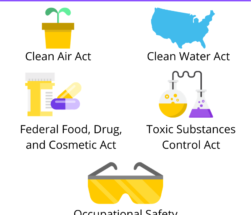In today’s fast-paced and competitive tech industry, conflicts are bound to arise in the workplace. These conflicts not only affect the productivity and morale of employees but also hinder the growth and success of the organization as a whole. Thus, effective conflict resolution strategies are crucial in maintaining a healthy work environment and fostering positive relationships among employees. In this article, we will explore the significance of conflict resolution in the tech niche and discuss some practical approaches to resolve conflicts professionally.
Understanding the Impact of Workplace Conflicts
Workplace conflicts can stem from various sources, such as differences in opinions, communication breakdowns, power struggles, or even personal issues. Regardless of the cause, these conflicts can lead to severe consequences if left unaddressed.
First and foremost, conflicts can disrupt the workflow and productivity of individuals and teams. When employees are embroiled in conflicts, their focus shifts from work-related tasks to personal disputes, leading to inefficiencies, missed deadlines, and lowered quality of work.
Moreover, unresolved conflicts can create tension and animosity among team members, destroying trust and cooperation. This toxic work environment hinders collaboration and makes it difficult for teams to achieve their goals collectively. In the tech niche, where collaboration and innovation are key drivers, such conflicts can result in missed opportunities and stifle creativity.
The Role of Effective Conflict Resolution
Conflict resolution techniques play a vital role in minimizing the negative impact of conflicts in the workplace and fostering a harmonious work environment. Here are some key reasons why conflict resolution is essential:
1. Improved Communication
One of the primary benefits of effective conflict resolution is enhanced communication. Conflict resolution encourages individuals to express their concerns and feelings in a controlled and respectful manner. This open dialogue allows for better understanding and promotes active listening, leading to improved working relationships and cooperation among colleagues.
2. Increased Productivity
Addressing workplace conflicts promptly and effectively saves precious time and resources that would otherwise be wasted on unnecessary disagreements. By resolving conflicts efficiently, team members can refocus their energy on their tasks, ensuring that productivity levels are not hampered.
3. Boosted Employee Morale
When conflicts are left unresolved, they create a negative and stressful work environment. On the other hand, effective conflict resolution techniques help resolve issues amicably, leading to increased job satisfaction and morale among employees. This positivity contributes to a more engaged and motivated workforce.
4. Retention of Talent
Conflict-ridden workplaces are often breeding grounds for high turnover rates. Employees who feel burdened by unresolved conflicts are more likely to seek employment elsewhere. By actively resolving conflicts, organizations demonstrate their commitment to employee well-being and establish themselves as desirable workplaces, which, in turn, promotes employee retention.
Practical Strategies for Conflict Resolution
Here are some practical strategies that can help resolve conflicts professionally in the tech niche:
1. Encourage Open Communication
Create an environment that encourages open and honest communication. Encourage employees to voice their concerns, ideas, and opinions freely. This creates a platform for constructive dialogue and minimizes the chances of conflicts arising from misunderstood or misrepresented information.
2. Adopt Active Listening
Listening attentively to all parties involved is crucial for effective conflict resolution. Encourage individuals to actively listen without interrupting and provide opportunities for each person to share their perspective. Active listening promotes empathy, understanding, and a balanced resolution.
3. Seek Mediation when Necessary
If conflicts escalate and become difficult to resolve internally, seeking mediation from a neutral third party can be beneficial. Mediators can help facilitate discussions, identify common ground, and guide individuals toward mutually agreeable solutions, ensuring a fair and unbiased resolution process.
4. Implement Conflict Resolution Training
Provide conflict resolution training programs for employees at all levels to equip them with the necessary skills to identify, manage, and resolve conflicts professionally. Training programs can cover active listening, effective communication, negotiation, and emotional intelligence, empowering employees to handle conflicts with confidence.
In conclusion, conflict resolution is of utmost importance in the tech niche to maintain a healthy work environment and foster positive relationships. By understanding the impact of workplace conflicts, organizations can implement effective strategies to resolve conflicts promptly and professionally. Encouraging open communication, active listening, seeking mediation when necessary, and providing conflict resolution training are practical steps that organizations can take to ensure conflicts are resolved in a fair and efficient manner. Through these measures, the tech industry can cultivate a collaborative and innovative ecosystem that drives growth and success.









